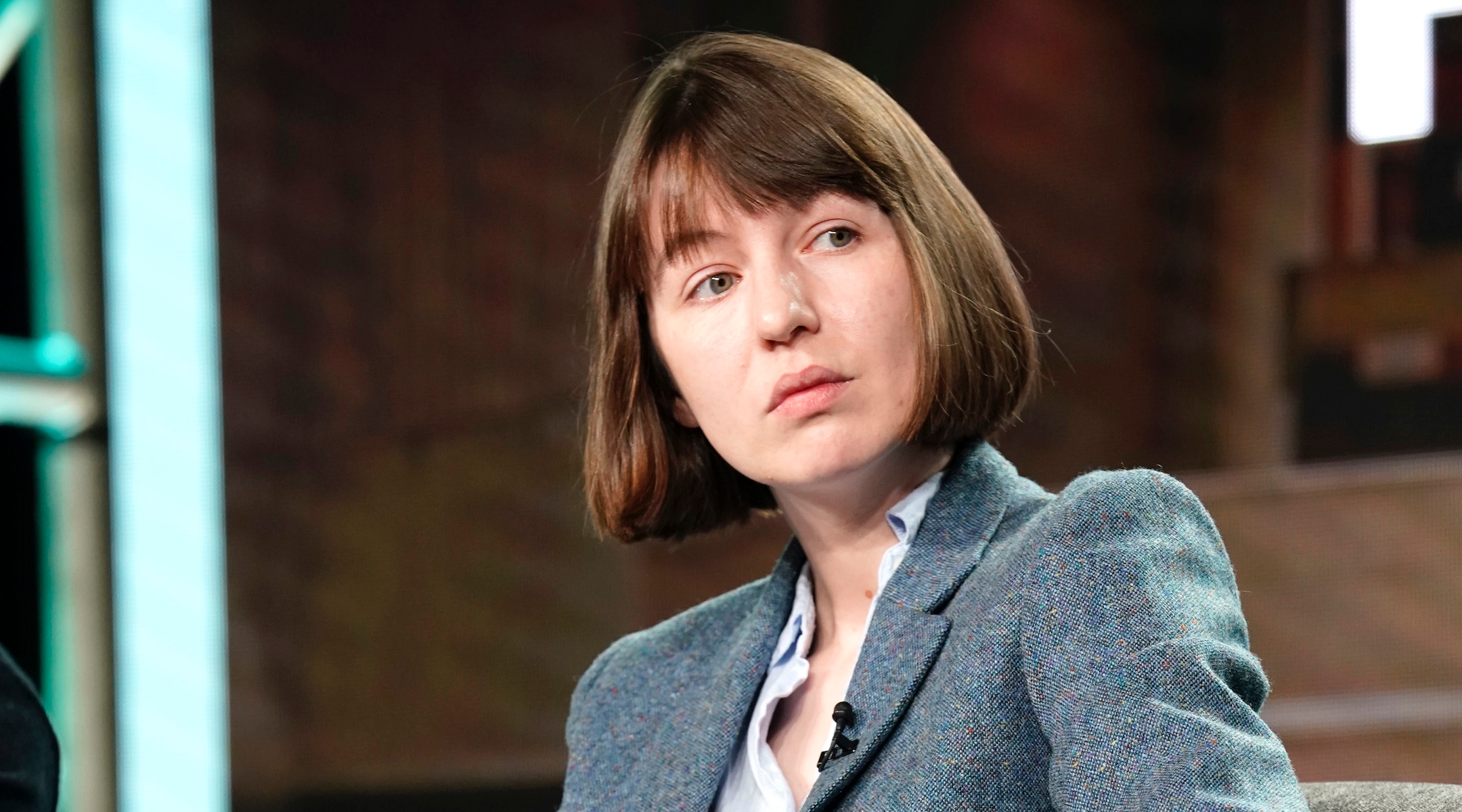Sally Rooney, Percival Everett among thousands of authors pledging to boycott all Israeli literary institutions
A competing letter organized by a pro-Israel group has drawn more than 1,000 signatories, including the authors Cynthia Ozick and Howard Jacobson

Sally Rooney speaks onstage during a conference in Pasadena, California on January 17, 2020. Photo by Erik Voake/Getty Images for Hulu
(JTA) — Sally Rooney, Percival Everett, Jhumpa Lahiri, Jonathan Lethem and other giants of the literary world are among thousands of authors to have signed a new letter declaring Israel’s actions in Gaza a genocide and pledging to boycott all Israeli literary institutions in protest.
The authors say they will not allow their books to be translated for the Israeli market — a reversal for some of them. Both Lahiri and Lethem have had recent books translated into Hebrew, while “American Fiction,” the movie based on Everett’s “Erasure,” played with Hebrew subtitles in Israel last year.
The authors also say they will “not cooperate with Israeli institutions including publishers, festivals, literary agencies and publications” if they “are complicit in violating Palestinian rights” or “have never publicly recognized the inalienable rights of the Palestinian people as enshrined in international law,” according to the letter.
The boycott effort was headed by the Palestine Festival of Literature.
The prominence and number of the signatories and scope of the proposed boycott set the action apart in a year filled with literary protests against Israel amid the Israel-Hamas war. It has also inspired pushback from notable Jews on the cultural circuit, with more than 1,000, mostly Jewish, authors and celebrities signing an opposing letter.
Several of the authors who signed the boycott pledge have previously expressed sharp criticism of Israel. Prior to Oct. 7, Rooney said she would not have her books translated into Hebrew by an Israeli publishing house because of her support of Israel boycotts. And after Oct. 7, Pulitzer Prize-winning author Viet Thanh Nguyen, who signed, was disinvited from the 92NY after the Jewish cultural institution objected to him signing an earlier letter critical of Israel.
Other names on the list have led campaigns against PEN America, the literary free-speech group, over what they say is the institution’s insufficiently pro-Palestinian stance.
Several of the boycott signatories are Jewish and/or have published books with heavy Jewish themes, including Lethem, Deborah Eisenberg, Naomi Klein, Rachel Kushner, Ben Lerner, Judith Butler, Alexander Hemon, Jess Row and poet Sam Sax. Many of these authors have previously expressed pro-Palestinian advocacy.
Among the non-Jewish authors on the list are several other bestsellers, celebrities and prizewinners, including John Cusack, Junot Diaz, Jia Tolentino, and Annie Ernaux. (Ta-Nehisi Coates, the celebrated nonfiction author whose new book made waves for comparing Israel’s treatment of Palestinians to the Jim Crow South, had not signed as of press time; Palfest was instrumental in his emergence as a pro-Palestinian voice.)
Many Jews in the literary world, including the Jewish Book Council and the new nonprofit watchdog group Artists Against Antisemitism, have been sounding the alarm for months about what they say is a growing antisemitic climate in the space, including circulated lists of “Zionist” authors to avoid; literary agents deemed unfriendly to Jewish voices; and Jewish author events disrupted by protesters. Some prominent authors have been targeted as “Zionists” despite holding no public opinions on Israel.
In response to these concerns, a competing letter spearheaded by the pro-Israel group Creative Community For Peace calling author boycotts “illiberal and dangerous,” adding, “The exclusion of anyone who doesn’t unilaterally condemn Israel is an inversion of morality and an obfuscation of reality.”
Signatories encompassed a broad range of creative fields and were not limited only to published authors. They numbered many prominent Jewish pro-Israel advocates in the entertainment and publishing spaces, including Mayim Bialik, Gene Simmons, Julianna Margulies, major pro-Israel donor Haim Saban, and Brett Gelman, who has claimed that some of his author events have been cancelled because of his pro-Israel views. Jewish authors such as Cynthia Ozick, Adam Gopnik, Howard Jacobson, Dara Horn, Yossi Klein Halevi and poet Ilya Kaminsky have also signed.
“We boycott your boycott,” the Jewish writer and signer Elisa Albert, who recently had a New York event canceled after fellow participants objected to her “Zionism,” posted on Instagram.
Notable non-Jewish authors on the letter include John Boyne, author of the long-controversial young adult Holocaust novel “The Boy In The Striped Pajamas”; thriller author Lee Child; and Lionel Shriver.
“Boycotts are about withholding, and for writers, boycotts are about silence as well as about silencing,” Shriver wrote in an essay for The Free Press, in which she invited Israeli publishing houses and festivals to usher her in. “It would be more in keeping with Rooney’s and Roy’s profession for these authors to put their anguish about Israel into words rather than to mutely withdraw their work and pressure other authors to shut up.”














